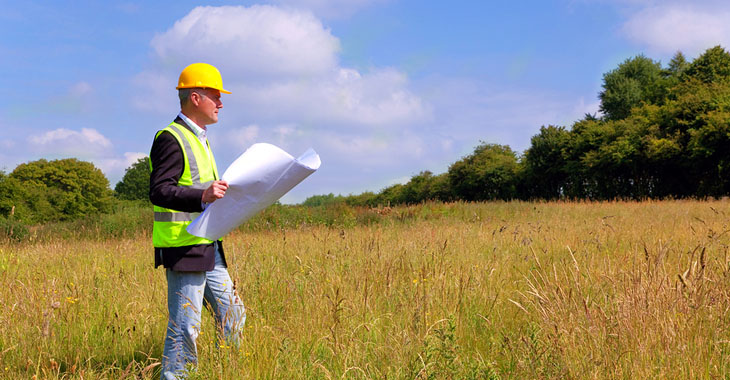What Is a Percolation Test?
How Is Testing Done?
A standard percolation test typically consists of the following steps:
- Verify site soils are suitable for septic development and verify with a County Sanitarian. This process includes reviewing profile holes to evaluate the texture of the soil and determine if there are any limiting conditions. Limiting conditions include, but are not limited to, high clay content and/or low distance to groundwater.
- Dig multiple percolation test holes at various depths, depending on soil conditions observed in Step #1.
- Insert a length of 3” perforated PVC pipe into each percolation test hole. The percolation test hole diameter needs to be greater than the pipe diameter. Leave a small amount of pipe extending above ground and surround the bottom of the pipe with 12” of pea gravel.
- Presoak the test holes adequately the day prior to the percolation test.
- On the day of the test, fill each pipe with water to the pea gravel and record the time filled.
- After one hour, measure the water level from the top of the pipe and record the results. Continue this process for six hours, refilling the pipe to the pea gravel whenever the water level drops to within two inches from the bottom of the test hole. If a pipe is dry after the first hour, refill to the pea gravel and take readings every ten minutes for two hours, also refilling the pipe to the pea gravel whenever the water level drops to within two inches from the bottom of the test hole.
- After the test is complete, divide the time intervals by the corresponding drop in water level to discover the percolation rate in units of minutes per inch.
Typically, soils with higher concentrations of clay will have slower percolation rates than sandy soils. The percolation rate, once established, will play a crucial part in the next step of the process, septic system design.
Call for Advice and Assistance
Atterbury and Associates has valuable experience in both percolation testing and site soils investigation for septic potential. As the area’s leading civil engineering and land planning firm, we here at Atterbury and Associates are at your disposal during the planning of your next project.
For more information on percolation testing and other geological and horticultural planning methods, please contact us at 707.433.0134, or find us on Facebook, Twitter, or Google+. You can also get updates on civil development issues by subscribing to our blog.


 RSS Feed
RSS Feed